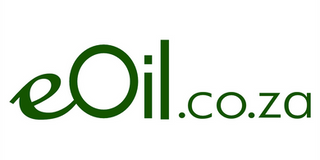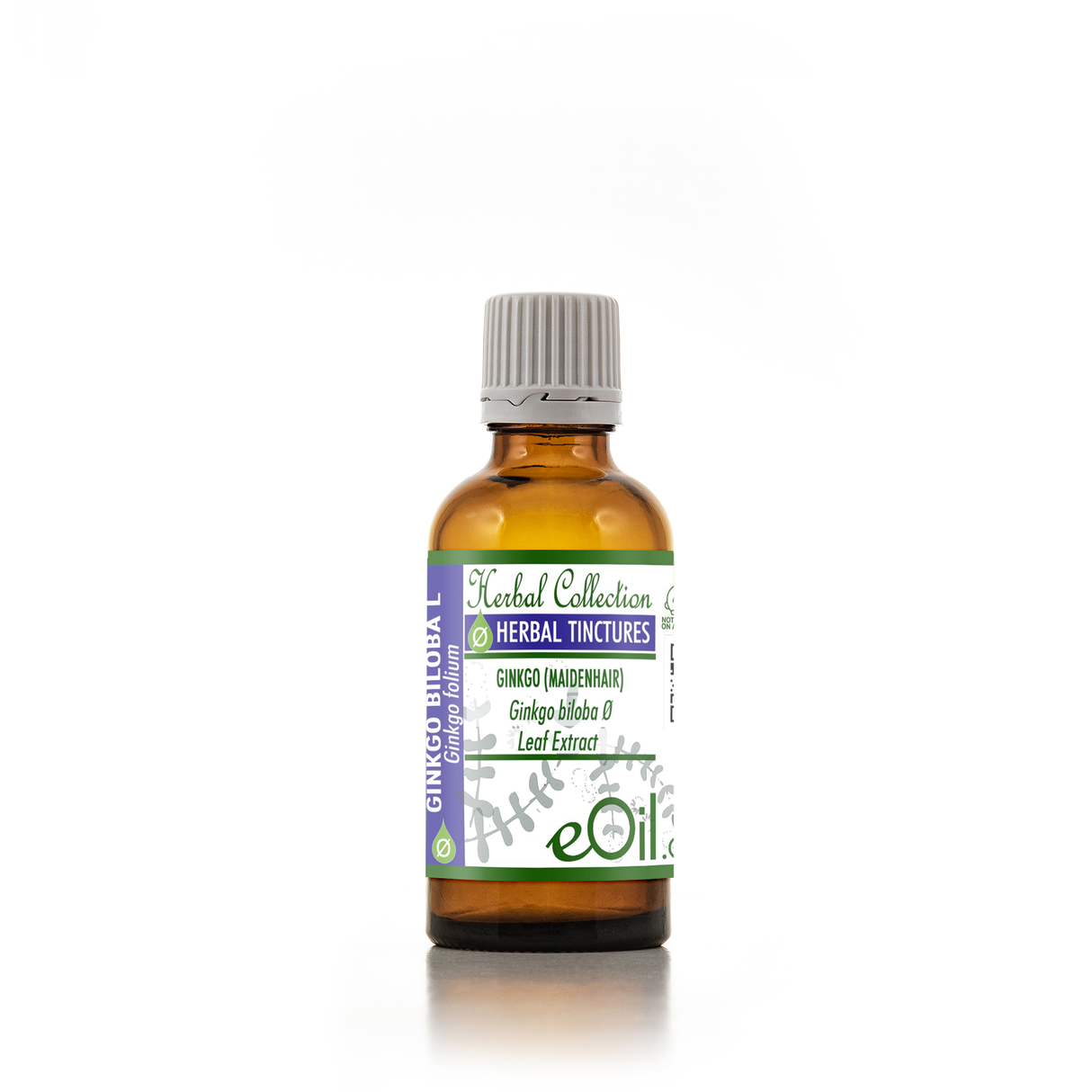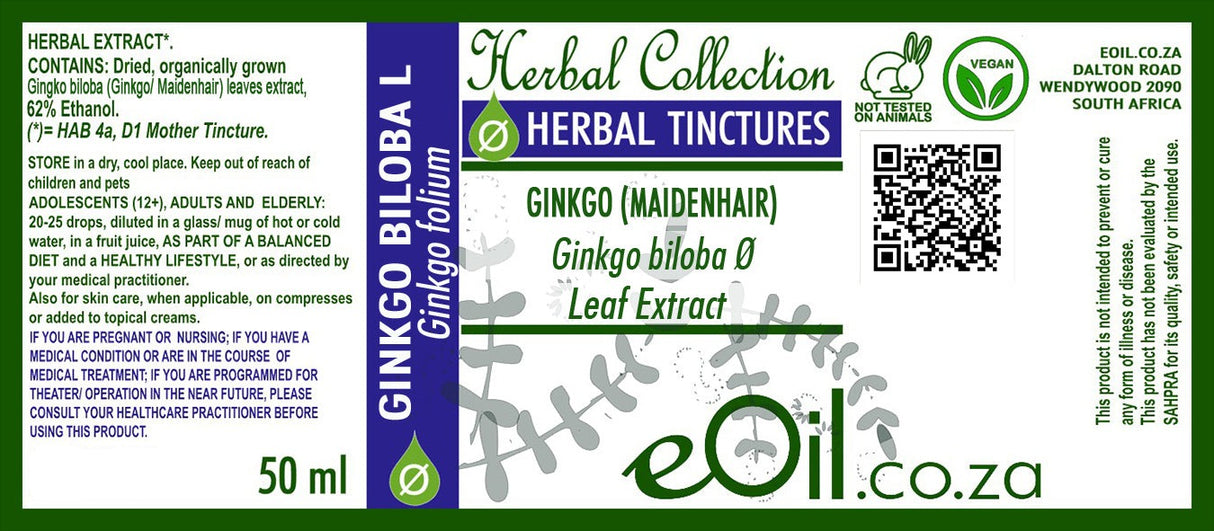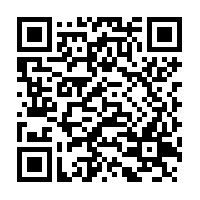Ginkgo biloba Liquid Herbal Extract
Ginkgo biloba Liquid Herbal Extract - 50 ML is backordered and will ship as soon as it is back in stock.
Description
Description
Understanding Mother Tinctures & Glycerines
Ginkgo Biloba Liquid Herbal Extract tincture (Ginkgo biloba) is a pure, plant-based supplement traditionally valued for supporting cognitive function, circulation, and overall wellness.
Rich in natural antioxidants and phytonutrients, this tincture is additive-free and ideal for daily routines to promote mental clarity and natural vitality
TRADITIONALLY USED FOR
May help with
- Memory - Concentration (studies)
- Vascular relaxation - Vaso protector
- Improve cognitive functions - mental performances
- anti-inflammatory
- tinnitus - vertigo
- anti stress
INFORMATION
Source : http://www.wikiphyto.org/wiki/Epine-vinette
Reference on http://www.wikiphyto.org
Translation in English by Google Translate (go to the page of the source linked | on Chrome cellphones go on the 3 dots on the top right and select translate in your preferred language | on laptop right click your mouse and select option translate when hoovering on the page
plant name
Ginkgo ( Tree of Forty Maidenhairs , Tree of Hundred Maidenhairs )
International Latin denomination
botanical family
Ginkgoaceae
Description and habitat
- Large dioecious (separate male and female) deciduous tree of eastern origin
- 30 to 40 m high
- Only survivor of its order (Ginkgoales) widely represented in the Tertiary era (Cenozoic)
- Remarkable longevity, some trees would reach the age of 4000 years in the Far East
- Long twigs spreading in clusters, and at the end of the branches twigs short, scaly, bearing long-stalked, fan-shaped leaves with flattened blades, alternate or arranged in clusters
History and tradition
- The first specimens were introduced in France in the 17th century by Pétigny, an amateur botanist, who would have nicknamed them "trees with forty ecus" in reference to the price he would have paid
- Ginkgo is also called "tree of a hundred crowns" to evoke the characteristic golden color that its leaves take in autumn.
- Revered and cultivated around pagodas in China and Japan
- The only surviving tree after Hiroshima in 1945, it is surprisingly resistant to all kinds of attacks (cold, drought, pollution, bacteria, viruses, fungi, parasites, insects)
- Introduced in France in the 17th century
- Traditional Chinese therapy did not use the leaves but the "seeds" or ovules which are disseminated to be fertilized later (archaic mode of reproduction)
- Its genus name ("Ginkgo") comes from two Chinese words meaning "silver apricot", referring to the color of its pseudo fruits
- Engelbert Kaëmpfer (1651-1715), a German botanist, was the first European to describe this tree and gave it its name from its Japanese name " gin kyo " .
- The species name, (biloba) "two-lobed" comes from the deep furrow that divides its leaves
- The mat of the "Sumo" fighters would imitate the fan-shaped leaf of the Ginkgo)
- Its medicinal use would be attested from the 3rd millennium BC in China (in the treatise " Shen-nung pen ts'ao ching ")
Parts used
- Sheets
Dosage forms available
- Standardized extracts (Tanakan® and generics, EGb 761) standardized in active ingredients
- Leaf tincture
- sheet eps
- Ginkgo tea is not effective as ginkgolides are not water soluble
Usual dosages
- Premium Ginkgo leaf extract products are concentrated at approximately 35-67:1 and standardized to contain between 22-27% flavonic glycosides, 5-7% terpene lactones (2.8 to 3.4% ginkgolides A, B and C and 2.6 to 3.2% bilobalide ) and less than 5 ppm ginkgolic acid (allergenic)
- The daily dose of ginkgolic acid not to be exceeded is set at 0.6 micrograms to prevent the risk of allergy
- The concentration range is important in standardized extracts ( bilobalide 2.9%, ginkgolide A ≥ 1%, g. B ≤ 1%, g. J ≤ 0.5%, etc.)
Composition
Main components of the plant
- Diterpenes known as ginkgolides A, B, C, J and M (0.02-0.2%) [1]
- Sesquiterpènes : bilobalide (0,02 à 0,06 %), pentanorginkgolide, dihydroatlantone
- Flavonoids :
- glycosides of flavonols glucosides, rhamnosides , rutinosides and p-coumaric esters of quercetol and kaempferol , luteolin
- biflavonoids : amentoflavone , bilobetol (or bilobetin ), 5-methoxybilobetol , ginkgetol ( ginkgetin ), isoginkgetol , sciadopitysine , apigenin
- Proanthocyanidols : prodelphinidols
- Other constituents:
- anacardic acids (ginkgolic acids )
- organic acids: 6-hydroxy-kinurenic acid , shikimic acid
- sterols , alcohols, aliphatic ketones, sugars, polysaccharides , cyclitols
Main components of buds or young shoots
Main components of essential oil
Properties
Plant properties
- Increased brain cell glucose and oxygen uptake, increased hypoxia threshold, activation of cortical metabolism ( bilobalide )
- Increase of 5-hydroxytryptamine (serotonin) by synapses, inhibition of accumulation of acylated glycerols and free fatty acids in rat hippocampus
- Anti-ischemic activity ( ginkgolides A and B , bilobalide ) and neuro-protective [2] , protects neurons from ischemic brain damage [3] , [4] , [5] , [6] , [7]
- Improvement of cognitive functions in healthy volunteers [8] , patients with dementia [9] , neuro-protective [10] , protective action against NO toxicity in the hippocampus ( flavonoids ) [11] , improves plasticity of hippocampal cells [12] , monoaminergic effect [13]
- Protective effect against NO degradation by prostacyclin PGI2
- Protection of motor neurons after neurological damage (intraperitoneal life) [14]
- Relaxation of the vascular walls, vasodilator, involving as mediator EDRF (endothelium derived relaxing factor), old name of NO (nitric oxide) [15]
- Protective effect on mesenteric arterioles of aged rats via enhancement of vascular elasticity and Akt/FoxO3a signaling pathway [16]
- Neuroprotective [17] , potential effects in senile dementia or Alzheimer's disease [18] , [19] , [20] , comparable to Donepezil® [21]
- Ginkgolides are antagonists of PAF ( ginkgolide B was the first model of Platelet Activating Factor inhibitor), intercellular phospholipid mediator secreted by platelets, leukocytes, macrophages, vascular endothelial cells, and involved in platelet aggregation and thromboformation , inflammation, allergy, asthma.
- Inhibition of PAF-induced inflammatory reaction, basophil degranulation and bronchoconstriction
- Protector against lipid peroxidation, membrane stabilizer against hypoxic degradation, increase in glutathione transferase ( ginkgolide A , bilobalide )
- Scavenging of free radicals by flavonoids , antioxidant
- Antiviral by certain biflavonoids ( ginkgetol = ginkgetin ) [22]
- Vasoprotector [23] , vasoregulator, arteriolar vasodilator, venous vasoconstrictor by increasing adrenergic tone, reinforces capillary resistance, inhibits platelet and erythrocyte aggregation
- Decreases depigmentation and improves repigmentation in vitiligo [24]
Bud properties
Properties of essential oil
Indications
Indications of the whole plant (phytotherapy)
- Improves mental performance (improved alertness and short-term memory) in individuals with cognitive disorders such as dementia (Alzheimer's disease, multi-infarct dementia or mixed dementia) and cerebral insufficiency
- An extract of ginkgo has proven to be as effective as second-generation anticholinesterases (donepezil, rivastigmine, metrifonate) in Alzheimer's disease [25] , it can be considered as the therapy of choice in this indication [26] , [ 27] , [28] , with an action other than anticholinesterase [29]
- Prevention of dementia: a standardized extract of Ginkgo biloba could exert a protective effect against dementia, in particular in people with mild cognitive impairment (German cohort study) [30]
- Weak but significant effect in proven dementia [31] or Alzheimer's disease (at dosages of 120 to 240 mg/day) [32] , a review of the literature shows a significant effect in Alzheimer's disease at 240 mg/day, without side effects [33]
- A literature review of 2561 patients showed that ginkgo extract EGb761 at a dose of 240 mg/day could stabilize or reduce cerebral decline after 22-26 weeks of treatment [34].
- Improves symptoms of chronic schizophrenia in combination with haloperidol [35]
- Chronic obliterating arterial disease of the lower limbs with intermittent claudication
- Raynaud's disease
- Tinnitus, vertigo, loss of hearing acuity of presumed ischemic origin
- Potentiation of the effect of statins in dyslipidemia [36]
- Anti-stress properties
- Pathological brain deficits in gerontology: depressive states, memory loss with hearing, visual, olfactory disorders
- The standardized extract EGb 761 of Ginkgo biloba has shown its effectiveness in improving memory in people aged 60 and over, objectified by specialized neuropsychological tests and subjective self-assessment questionnaire (double-blind study against placebo) [37]
- Parkinson's disease (?) [38]
- Vitiligo
- Potentialities in cancer (?) [39] , [40]
Indications of the bud (gemmotherapy)
Specific indications of essential oil (aromatherapy)
Known or suspected mode of action
- Ginkgo leaf is not taken into consideration in a light MA dossier, because a simple extract cannot claim the same effects as those of EGB 761
- Increased brain cell glucose and oxygen uptake, increased hypoxia threshold, activation of cortical metabolism
- There is a synergy between the different components [41]
- Apigenin ( flavonoid ) blocks a step in the estrogen manufacturing chain
- Ginkgetol ( ginkgetin ) inhibits Influenza virus sialidase
Usual formulations
Regulations
- French Pharmacopoeia list A (sheet)
Possible side effects and precautions for use
- Products containing ginkgo fruits or seeds should not be consumed as they contain toxic constituents (toxic alkaloids )
- Avoid during pregnancy and lactation [42] due to lack of sufficient data in pregnant women, nor on passage into breast milk during lactation [43]
- Avoid in case of epileptic seizures [44] , risk of pharmacokinetic interactions (induction of CYP2C9 and CYP2C19) [45]
- Rare allergies ( ginkgolic acid ) [46]
- The daily dose of ginkgolic acid not to be exceeded is set at 0.6 micrograms to prevent the risk of allergy. According to the compositions mentioned on 20 products tested, a consumer can swallow up to 48,000 micrograms of ginkgolic acid per day, i.e. 80,000 times the recommended dose in Germany
- Contraindicated in hemophilia
- Several pharmacodynamic studies suggest that ginkgo inhibits platelet aggregation ( ginkgolide B), [47] , [48]
- Due to the antiaggregating properties of Ginkgo biloba, caution is recommended in patients with bleeding or treated with an anticoagulant or antiplatelet agent.
- Stop treatment 3 to 4 days before surgery, as a precaution
- Ginkgo biloba should not be associated:
- With drugs of the benzodiazepine class, because ginkgolides act as gamma-aminobutyric acid ( GABA ) receptor agonists
- With oral anticoagulants, such as warfarin [49] , [50] , [51]
- With aspirin (increased bleeding time)
- With nonsteroidal anti-inflammatory drugs (NSAIDs), because by acting on platelet aggregation factor (PAF) they decrease aggregation [52]
- Ginkgo biloba should not be associated:
- Action on cytochromes CYP3A4, 2C9, 2C19 [53]
- The flavonoids apigenin , kaempferol , quercetin could interact with organic anion transport polypeptides OATP2B1 and OATP1A2 [54]
Bibliographic references
- Go↑ Jaracz S, Malik S, Nakanishi K. Isolation of ginkgolides A, B, C, J and bilobalide from G. biloba extracts. Phytochemistry. 2004 Nov;65(21):2897-902. PMID 15501258
- Go↑ Ahlemeyer B, Krieglstein J. Neuroprotective effects of Ginkgo biloba extract. Cell Mol Life Sci. 2003 Sep;60(9):1779-92. PMID 14523543
- Go↑ Koh PO. Gingko biloba extract (EGb 761) attenuates ischemic brain injury-induced reduction in Ca(2+) sensor protein hippocalcin. Lab Anim Res. 2012 Sep;28(3):199-204. doi: 10.5625/lar.2012.28.3.199. PMID 23091520
- Go↑ Sung JH, Shah FA, Cho EH, Gim SA, Jeon SJ, Kim KM, Kim YM, Kim MO, Koh PO. Ginkgo biloba extract (EGb 761) prevents the ischemic brain injury-induced decrease in parvalbumin expression. Lab Anim Res. 2012 Jun;28(2):77-82. PMID 22787480 texte intégral
- Go↑ Koh PO. Gingko biloba extract (EGb 761) attenuates the focal cerebral ischemic injury-induced decrease in astrocytic phosphoprotein PEA-15 levels. Am J Chin Med. 2011;39(5):971-9. PMID 21905286
- Go↑ Koh PO. Gingko biloba extract (EGb 761) prevents cerebral ischemia-induced p70S6 kinase and S6 phosphorylation. Am J Chin Med. 2010;38(4):727-34. PMID 20626058
- Go↑ Koh PO. Gingko biloba extract (EGb 761) prevents increase of Bad-Bcl-XL interaction following cerebral ischemia. Am J Chin Med. 2009;37(5):867-76. PMID 19885947
- Go↑ Cieza A, Maier P, Pöppel E. Effects of Ginkgo biloba on mental functioning in healthy volunteers. Arch Med Res. 2003 Sep-Oct;34(5):373-81. PMID 14602503
- Go↑ Weinmann S, Roll S, Schwarzbach C, Vauth C, Willich SN. Effects of Ginkgo biloba in dementia: systematic review and meta-analysis. BMC Geriatr. 2010 Mar 17;10:14. PMID 20236541, texte intégral [1]
- Go↑ Smith PF, Maclennan K, Darlington CL. The neuroprotective properties of the Ginkgo biloba leaf: a review of the possible relationship to platelet-activating factor (PAF). J. Ethnopharmacol. 1996;50(3):131-9. PMID 8691847
- Go↑ Bastianetto S, Zheng WH, Quirion R. The Ginkgo biloba extract (EGb 761) protects and rescues hippocampal cells against nitric oxide-induced toxicity: involvement of its flavonoid constituents and protein kinase C. J Neurochem. 2000 Jun;74(6):2268-77. PMID 10820186
- Go↑ Wang Y, Wang L, Wu J, Cai J. The in vivo synaptic plasticity mechanism of EGb 761-induced enhancement of spatial learning and memory in aged rats. Br J Pharmacol. 2006 May;148(2):147-53. PMID 16547523 Texte intégral : [2]
- Go↑ Kamilla Blecharz-Klin, Agnieszka Piechal, Ilona Joniec, Justyna Pyrzanowska, Ewa Widy-Tyszkiewicz. Pharmacological and biochemical effects of Ginkgo biloba extract on learning, memory consolidation and motor activity in old rats. Acta Neurobiol Exp 2009, 69: 217–231 texte intégral
- Go↑ Cheng X, Liu FL, Zhang J, Wang LL, Li FL, Liu S, Zhou LH. EGb761 protects motoneurons against avulsion-induced oxidative stress in rats. J Brachial Plex Peripher Nerve Inj. 2010 May 24;5:12. PMID 20497551 Texte intégral : [3]
- Go↑ Auguet M, Delaflotte S, Hellegouarch A, Clostre F. [Pharmacological bases of the vascular impact of Ginkgo biloba extract]. Pharmacological bases of the vascular impact of Ginkgo biloba extract. Med Press. 1986 Sep 25;15(31):1524-8. PMID 2947093
- Go↑ Yong Chen, Kaikai Yu, Yudong Hu, Yanhua Chang. Ginkgo biloba Extract Protects Mesenteric Arterioles of Old Rats via Improving Vessel Elasticity through Akt/FoxO3a Signaling Pathway. Annals of Vascular Surgery, Volume 57, 2019, Pages 220-228, https://doi.org/10.1016/j.avsg.2019.01.001.
- Go↑ Singh SK, Srivastav S, Castellani RJ, Plascencia-Villa G, Perry G. Neuroprotective and Antioxidant Effect of Ginkgo biloba Extract Against AD and Other Neurological Disorders. Neurotherapeutics. 2019 Jul;16(3):666-674. doi: 10.1007/s13311-019-00767-8. PMID 31376068
- Go↑ Bate C. Ginkgolides protect against amyloid-β1–42-mediated synapse damage in vitro. Molecular Neurodegeneration. 2008; 3: 1
- Go↑ Dos Santos-Neto L et coll. The Use of Herbal Medicine in Alzheimer's Disease—A Systematic Review. Evid Based Complement Alternat Med. 2006; 3(4): 441–445
- Go↑ Chiappelli F. Evidence-Based Research in Complementary and Alternative Medicine III: Treatment of Patients with Alzheimer's Disease. Evid Based Complement Alternat Me. 2006; 3(4): 411–424
- Go↑ Mazza M, Capuano A, Bria P, Mazza S. Ginkgo biloba and donepezil: a comparison in the treatment of Alzheimer's dementia in a randomized placebo-controlled double-blind study. Eur J Neurol. 2006 Sep;13(9):981-5. PMID 16930364
- Go↑ Miki K, Nagai T, Suzuki K, Tsujimura R, Koyama K, Kinoshita K, Furuhata K, Yamada H, Takahashi K. Anti-influenza virus activity of biflavonoids. Bioorg Med Chem Lett. 2007 Feb 1; 17 (3): 772-5. PMID 17110111
- Go↑ Tian J, Liu Y, Chen K. Ginkgo biloba Extract in Vascular Protection: Molecular Mechanisms and Clinical Applications. Curr Vasc Pharmacol. 2017;15(6):532-548. doi: 10.2174/1570161115666170713095545. PMID 28707602
- Go↑ Szczurko O, Shear N, Taddio A, Boon H. Ginkgo biloba for the treatment of Vitiligo vulgaris: an Open Label Pilot Clinical Trial. BMC Complementary and Alternative Medicine 2011, 11:21 (15 March 2011) [4]
- Go↑ Wettstein A. Cholinesterase inhibitors and Gingko extracts--are they comparable in the treatment of dementia? Comparison of published placebo-controlled efficacy studies of at least six months' duration. Phytomedicine. 2000 Jan;6(6):393-401. PMID 10755847
- Go↑ Schulz V. Ginkgo extract or cholinesterase inhibitors in patients with dementia: what clinical trials and guidelines fail to consider. Phytomedicine. 2003;10 Suppl 4:74-9. PMID 12807348
- Go↑ Brondino N, De Silvestri A, Re S, Lanati N, Thiemann P, Verna A, Emanuele E, Politi P. A Systematic Review and Meta-Analysis of Ginkgo biloba in Neuropsychiatric Disorders: From Ancient Tradition to Modern-Day Medicine. Evid Based Complement Alternat Med. 2013;2013:915691. doi: 10.1155/2013/915691. PMID 23781271 texte intégral
- Go↑ Gauthier S, Schlaefke S. Efficacy and tolerability of Ginkgo biloba extract EGb 761® in dementia: a systematic review and meta-analysis of randomized placebo-controlled trials. Clin Interv Aging. 2014 Nov 28;9:2065-77. doi: 10.2147/CIA.S72728. eCollection 2014. PMID 25506211
- Go↑ Doraiswamy PM. Non-cholinergic strategies for treating and preventing Alzheimer's disease. CNS Drugs. 2002;16(12):811-24. PMID 12421115
- Go↑ Bohlken J, Peters O, Kostev K. Association Between Ginkgo Biloba Extract Prescriptions and Dementia Incidence in Outpatients with Mild Cognitive Impairment in Germany: A Retrospective Cohort Study. J Alzheimers Dis. 2022 Feb 3. doi: 10.3233/JAD-215348. PMID 35124648.
- Go↑ Ahlemeyer B, Krieglstein J. Pharmacological studies supporting the therapeutic use of Ginkgo biloba extract for Alzheimer's disease. Pharmacopsychiatry. 2003 Jun;36 Suppl 1:S8-14.PMID 13130383
- Go↑ Oken BS, Storzbach DM, Kaye JA. The efficacy of Ginkgo biloba on cognitive function in Alzheimer disease. Arch Neurol. 1998 Nov;55(11):1409-15.PMID 9823823
- Go↑ Zhang HF, Huang LB, Zhong YB, Zhou QH, Wang HL, Zheng GQ, Lin Y. An Overview of Systematic Reviews of Ginkgo biloba Extracts for Mild Cognitive Impairment and Dementia. Front Aging Neurosci. 2016 Dec 6;8:276. doi: 10.3389/fnagi.2016.00276. eCollection 2016. PMID 27999539
- Go↑ Tan MS, Yu JT, Tan CC, Wang HF, Meng XF, Wang C, Jiang T, Zhu XC, Tan L. Efficacy and adverse effects of ginkgo biloba for cognitive impairment and dementia: a systematic review and meta-analysis. J Alzheimers Dis. 2015;43(2):589-603. doi: 10.3233/JAD-140837. PMID 25114079
- Go↑ Knable MB. Extract of Ginkgo biloba added to haloperidol was effective for positive symptoms in refractory schizophrenia. Evid Based Ment Health. 2002 Aug;5(3):90. J Clin Psychiatry. 2001 Nov;62(11):878-83. PMID 12180457, texte intégral : [5]
- Go↑ Fan Y, Jin X, Man C, Gong D. Does Adjuvant Treatment With Ginkgo Biloba to Statins Have Additional Benefits in Patients With Dyslipidemia? Front Pharmacol. 2018 Jun 22;9:659. doi: 10.3389/fphar.2018.00659. eCollection 2018. PMID 29988404
- Go↑ Mix JA, Crews WD Jr. A double-blind, placebo-controlled, randomized trial of Ginkgo biloba extract EGb 761 in a sample of cognitively intact older adults: neuropsychological findings. Hum Psychopharmacol. 2002 Aug;17(6):267-77. PMID 12404671
- Go↑ Tanaka K, Galduróz RFS-, Gobbi LTB, Galduróz JCF. Ginkgo Biloba Extract in an Animal Model of Parkinson’s Disease: A Systematic Review. Current Neuropharmacology. 2013;11(4):430-435. doi:10.2174/1570159X11311040006 texe intégral
- Go↑ Gohil K, Moy RK, Farzin S, Maguire JJ, Packer L. mRNA expression profile of a human cancer cell line in response to Ginkgo biloba extract: induction of antioxidant response and the Golgi system. Free Radic Res. 2000 Dec;33(6):831-49. PMID 11237105
- Go↑ Feng X, Zhang L, Zhu H. Comparative anticancer and antioxidant activities of different ingredients of Ginkgo biloba extract (EGb 761). Planta Med. 2009 Jun;75(8):792-6. doi: 10.1055/s-0029-1185451. PMID 19288403
- Go↑ Lingli Mu, Junping Kou, Danni Zhu, Boyang Yu. Comparison of Neuroprotective Effects of Flavonoids, Terpenoids, and Their Combinations from Ginkgo biloba on Ischemia-Reperfusion–Injured Mice. Pharmaceutical Biology 2007, Vol. 45, No. 9, pp. 728–733 [6]
- Go↑ Dugoua JJ, Mills E, Perri D, Koren G. Safety and efficacy of ginkgo (Ginkgo biloba) during pregnancy and lactation. Can J Clin Pharmacol. 2006 Fall;13(3):e277-84. PMID 17085776
- Go↑ European Union herbal monograph on Ginkgo biloba L., folium EMA/HMPC/321097/2012 Monographie EMA
- Go↑ Harms SL, Garrard J, Schwinghammer P, Eberly LE, Chang Y, Leppik IE. Ginkgo biloba use in nursing home elderly with epilepsy or seizure disorder. Epilepsia. 2006 Feb;47(2):323-9. doi: 10.1111/j.1528-1167.2006.00424.x. PMID 16499756.
- Go↑ Kupiec T, Raj V. Fatal seizures due to potential herb-drug interactions with Ginkgo biloba. J Anal Toxicol. 2005 Oct;29(7):755-8. doi: 10.1093/jat/29.7.755. PMID 16419414.
- Go↑ RAISON-PEYRON, N. “TOXIDERMIES” IS NOT ALWAYS A MEDICINE. Progress in dermato-allergology: Besançon 2012, 2012, vol. 18, No. 7, p. 109.
- Go↑ Cho, H. J., & Nam, K. S. (2007). Inhibitory effect of ginkgolide B on platelet aggregation in a cAMP- and cGMP-dependent manner by activated MMP-9. Journal of biochemistry and molecular biology, 40(5), 678–683. https://doi.org/10.5483/bmbrep.2007.40.5.678. PMID 17927900
- Go↑ E. Koch. Inhibition of platelet activating factor (PAF)-induced aggregation of human thrombocytes by ginkgolides: considerations on possible bleeding complications after oral intake of Ginkgo biloba extracts. Phytomedicine, Volume 12, Issues 1–2, 2005, Pages 10-16, https://doi.org/10.1016/j.phymed.2004.02.002.
- Go↑ Vaes LP, Chyka PA. Interactions of warfarin with garlic, ginger, ginkgo, or ginseng: nature of the evidence. Ann Pharmacother. 2000 Dec;34(12):1478-82. PMID 11144706
- Go↑ Izzo AA, Di Carlo G, Borrelli F, Ernst E. Cardiovascular pharmacotherapy and herbal medicines: the risk of drug interaction. Int J Cardiol. 2005 Jan;98(1):1-14. PMID 15676159
- Go↑ Heck AM, DeWitt BA, Lukes AL. Potential interactions between alternative therapies and warfarin. Am J Health Syst Pharm. 2000 Jul 1;57(13):1221-7; quiz 1228-30. PMID 10902065
- Go↑ Natural health products, to better advise patients. Reference document of the College of Physicians and the Order of Pharmacists of Quebec. October 2004
- Go↑ Mohutsky MA, Anderson GD, Miller JW, Elmer GW. Ginkgo biloba: evaluation of CYP2C9 drug interactions in vitro and in vivo. Am J Ther. 2006 Jan-Feb;13(1):24-31. doi: 10.1097/01.mjt.0000143695.68285.31. PMID 16428919
- Go↑ Mandery K, Bujok K, Schmidt I, Keiser M, Siegmund W, Balk B, König J, Fromm MF, Glaeser H. Influence of the flavonoids apigenin, kaempferol, and quercetin on the function of organic anion transporting polypeptides 1A2 and 2B1. Biochem Pharmacol. 2010 Dec 1;80(11):1746-53. doi: 10.1016/j.bcp.2010.08.008. PMID 20797388.
- Zhou Yan-Hong et coll. Effects of Ginkgo biloba Extract on Inflammatory Mediators (SOD, MDA, TNF-α, NF-κBp65, IL-6) in TNBS-Induced Colitis in Rats. Mediators Inflamm. 2006(5): 92642.
- Calapai G, Caputi AP. Herbal Medicines: Can We Do Without Pharmacologist? Evid Based Complement Alternat Med. 2007; 4(Suppl 1): 41–43.
- Linde K, Riet G, Hondras M, Vickers A, Saller R, Melchart D. Systematic reviews of complementary therapies – an annotated bibliography. Part 2: Herbal medicine. BMC Complement Altern Med. 2001; 1: 5.
- Birks J, Grimley Evans J. Ginkgo biloba for cognitive impairment and dementia. Cochrane Database Syst Rev. 2009 Jan 21;(1). PMID 19160216
- M Obulesu, Dowlathabad Muralidhara Rao. Effect of plant extracts on Alzheimer's disease: An insight into therapeutic avenues. J Neurosci Rural Pract. 2011 Jan-Jun; 2(1): 56–61. texte intégral
- Peña-Casanova J. Alzheimer's Disease Assessment Scale--cognitive in clinical practice. Int Psychogeriatr. 1997;9 Suppl 1:105-14. PMID 9447433
- Puel M, Hugonot-Diener L. Presentation by the GRECO group of the French adaptation of a cognitive assessment scale used in Alzheimer type dementia. in dementia of the Alzheimer type). Med Press. 1996 Jun 22;25(22):1028-32. PMID 8692788 [7]
CAUTION
Store in a cool, dry place, away from light. Keep tightly closed, away from the reach of Children and pets.
Do not exceed the daily dose.
This product is not intended to prevent or cure any form of illness or disease.
If you are pregnant or nursing ; If you have a medical condition or are in the course of medical treatment ; If you are programmed for theater/operation in the near future, please consult your healthcare practitioner before using this product.
This product cannot replace a varied and balanced diet and a healthy lifestyle.
This product has not been evaluated by the SAHPRA for its quality, safety or intended use.
For More Information please check our General Safety Herbal products Page

Ginkgo biloba Liquid Herbal Extract - 50 ML is backordered and will ship as soon as it is back in stock.





